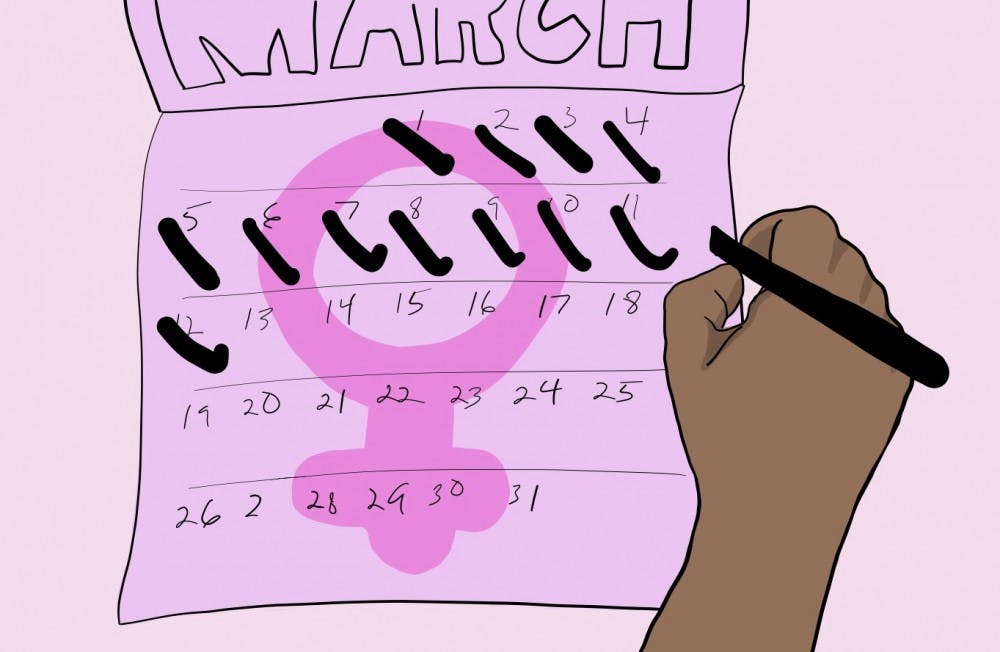Coalitions and clubs across all of ASU’s campuses have banned together to plan Women’s HERstory Month events in an effort to spread awareness of women’s rights and promote equality.
Womyn’s Coalition, VOX, Womanity and the Panhellenic Council are some of the organizations involved. A committee made up of leaders from these clubs along with school administrators have been planning since the start of the spring semester to have an event for almost every day of March.
It's March which means it's Women's HERstory Month! Check out the events happening on all 4 campuses #YourStoryForHERstory pic.twitter.com/L30LY5wotq
— Culture@ASU (@CultureASU) March 2, 2017
Carol Comito, academic adviser of Hugh Downs School of Human Communication, has played an active role in planning HERstory month. Comito has given the committee connections to the sixth Arizona Women’s Conference on March 25, of which she is the co-founder and chair.
She said feminism means women having equality in all aspects of life, and hopes that the efforts of HERstory month “highlights the inequalities of women" and how they are "treated as second class citizens.”
Although Comito has not personally felt any attacks, she said she has heard of lewd behavior towards women on campus.
“Any institution mirrors the general society," Comito said. "Rape is still rampant, and it’s disturbing to hear about people harassing women.”
She said she hopes that the efforts by the coalitions and women’s clubs on campus “create awareness and education about the issues that affect women."
Women need to stand up for each in solidarity, Comito said, in order to make a change in a society that has a long way to go.
One of the most active organizations in this project has been Womyn's Coalition. One of their members, accounting freshman Mary McNamara, has helped in the planning of the ASU Women in Business Networking Mixer on March 15 and by acting as a liaison for Womyn's Coalition at Barrett's Residential Council meetings.
McNamara said she hopes her efforts help clear up the narrow perception people may have about feminism.
"We want to form a better platform for the issues Womyn's Coalition cares about, which is to make equality of genders known," she said. "Feminism is just as simple as respect and equality, and not just within the gender binary, but beyond."
She said women at ASU have equal opportunity as men, but slurs and assault have become "a part of our day to day lives, so much that we've grown numb to it."
McNamara recalled her first encounter with attacks on campus was among the first few weeks of her freshman year when she saw a man grab a woman from behind, and as she tried to remove his hands, he proceeded to turn her around and grab her breasts.
"As a campus community, one that is striving to better its environment, people should pay attention to how their language and actions affect the bigger picture," McNamara said.
Another student advocating for a safer and more understanding campus community is biochemistry sophomore Ntombizodwa Makuyana, who has been an active part of contributing ideas and planning on the HERstory committee as a liaison for the Coalition of International Students.
Makuyana said the committee hopes to include everybody in the celebration of women empowerment. She said the goal is to show the women on campus that there is a place for them.
One way Makuyana and the committee have tried to encourage students to celebrate strong women is through the Badass Women of ASU award, which will recognize an exceptional female student or staff member at ASU during HERstory month.
Makuyana said before the planning she did not consider herself a feminist, but getting a chance to celebrate women on the planning committee has made her identify as one. She said she wants women to have the same opportunities as men, and hopes that the planning efforts will remove the mentality that women are not capable of doing what men can do.
“It shouldn’t be about identifying gender," Makuyana said. "It should be about basing things off of ability. We should have the chance to do things."
Reach the reporter at mvbandal@asu.edu
Like The State Press on Facebook and follow @statepress on Twitter.




